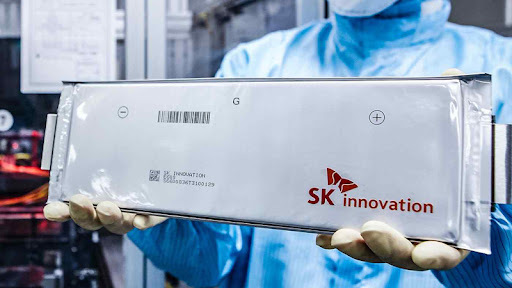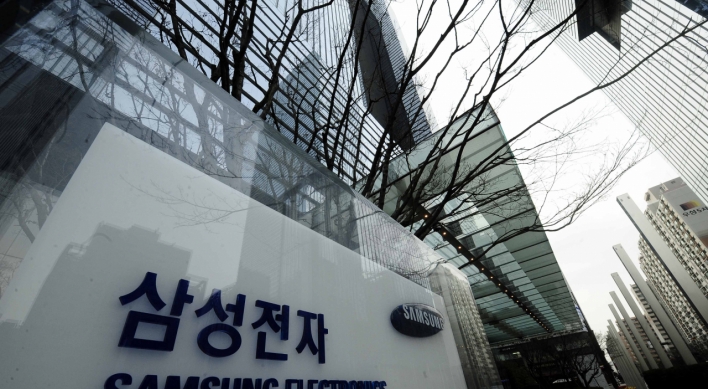SK Innovation swings to black in Q3, EV battery biz still unprofitable
By Kim Byung-wookPublished : Oct. 29, 2021 - 16:54

SK Innovation enjoyed an operating profit of 618.5 billion won ($529.2 million) in the third quarter, bouncing back from an operating loss of 53.7 billion won on-year, a regulatory filing showed Friday.
The South Korean battery-to-petrochemical giant logged revenue of 12.3 trillion won in the July-September period, a 48.1 percent surge from 8.3 trillion won, buoyed by record quarterly sales in both lubricant and battery businesses.
According to SK Innovation, two new battery factories in China, which began mass production in the first half of this year, propelled the firm’s record battery sales of 816.8 billion won, a 68 percent hike from 486 billion won from a year prior.
“We expect the battery sales to breach a 3-trillion-won threshold this year,” a company official said.
During a conference call held shortly after the performance announcement, SK Innovation executives said that the firm’s battery order backlog stands at 1.6 terawatt-hours, which is worth 220 trillion won.
Despite the robust order backlog, they added that the battery business is unlikely to turn profit this year, though the break-even point is estimated to reached next year.
Also, executives made it official that SK Innovation is in the research and development stage of lithium-iron phosphate, or LFP, batteries, with the aim of mass producing them.
The executives said that based on the firm’s experience accumulated from manufacturing high-density NCM (nickel cobalt manganese) lithium-ion batteries, it would develop high-density LFP batteries capable of fast charging to meet diversifying market needs.
Jee Dong-seob, CEO of SK On, a battery unit carved out from SK Innovation this month, previously said that he is considering the production of LFP batteries to target the low-end electric vehicle market.
SK Innovation’s strategy to produce LFP batteries for EVs draws a stark contrast to its hometown rival LG Energy Solution, which announced on Monday it would develop LFP batteries, but only for energy storage systems, not EVs.
Manufactured predominantly by Chinese companies, LFP batteries offer two key strengths -- lower prices and stability. Compared to lithium-ion batteries, which contain expensive metals such as cobalt and nickel, LFP batteries use phosphoric acid and iron as the main materials. While they are relatively safer from fire risks, they are lower in energy density and heavier in weight. Also, they are sensitive to humidity during the manufacturing process.





![[KH Explains] No more 'Michael' at Kakao Games](http://res.heraldm.com/phpwas/restmb_idxmake.php?idx=644&simg=/content/image/2024/04/28/20240428050183_0.jpg&u=20240428180321)



![[Grace Kao] Hybe vs. Ador: Inspiration, imitation and plagiarism](http://res.heraldm.com/phpwas/restmb_idxmake.php?idx=644&simg=/content/image/2024/04/28/20240428050220_0.jpg&u=)








![[Herald Interview] Xdinary Heroes shoot for the next level with 'Troubleshooting'](http://res.heraldm.com/phpwas/restmb_idxmake.php?idx=642&simg=/content/image/2024/04/29/20240429050745_0.jpg&u=)